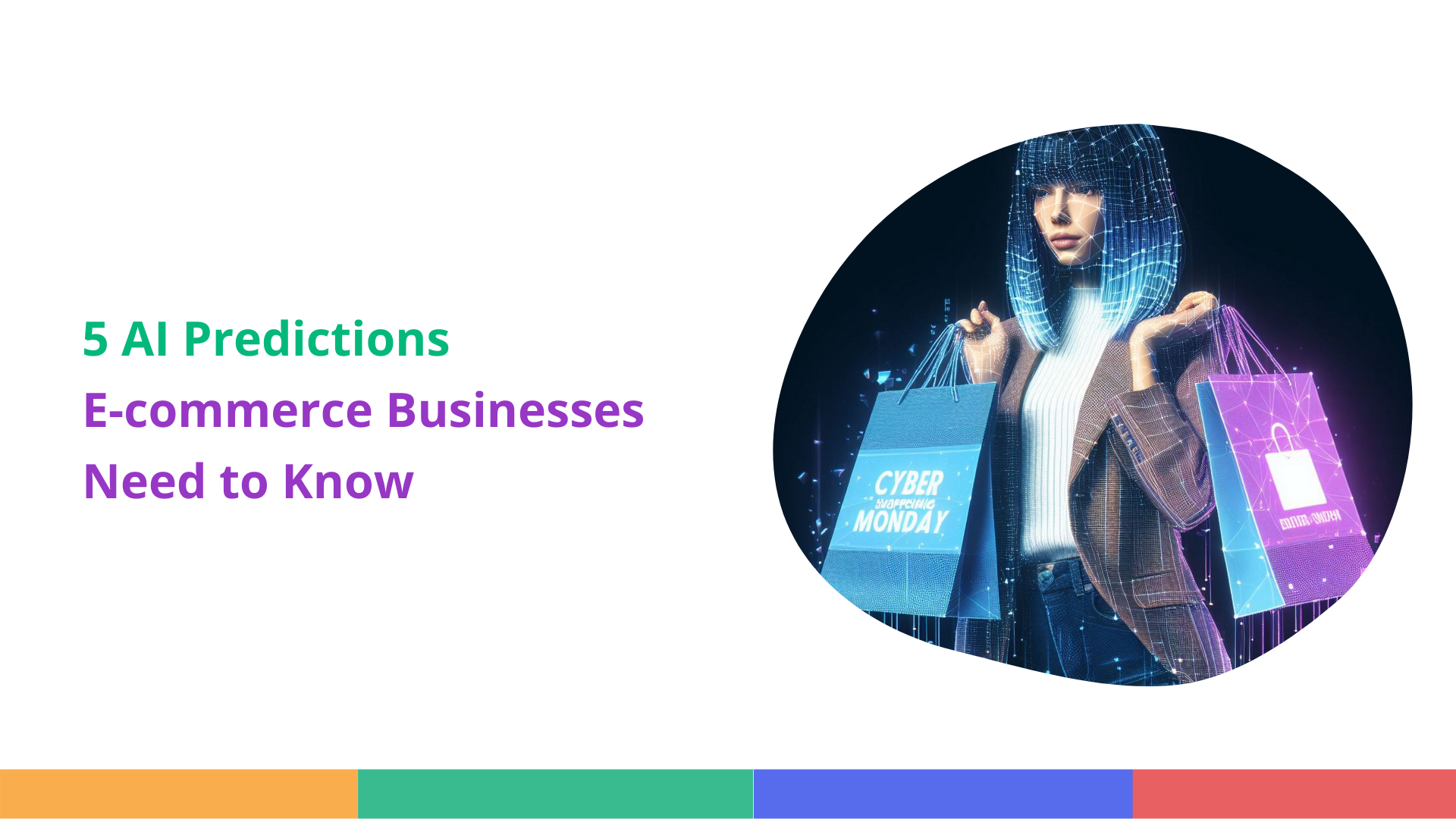Artificial intelligence (AI) is no longer a futuristic concept; it’s actively transforming industries, including e-commerce. Much like the Industrial Revolution reshaped production and trade, AI is now revolutionizing how businesses operate, providing tools that automate processes, personalize customer experiences, and improve efficiency. This article explores five AI predictions e-commerce businesses—whether just starting or scaling—need to understand to stay competitive in the ever-changing market landscape.
5 AI Predictions for E-commerce Businesses
- AI Will Be a Game-Changer for Businesses of All Sizes
AI adoption is increasing across sectors like retail, healthcare, and finance, enabling businesses to streamline operations. Smaller e-commerce sellers, in particular, can leverage AI tools—such as personalized product recommendation engines or automated marketing platforms—without breaking the bank. Studies show that over 65% of companies are adopting AI in at least one function, with marketing and sales leading the way. - Natural Language Processing (NLP) Will Transform Customer Interactions
AI-driven chatbots and virtual assistants are redefining customer service, providing instant and personalized assistance. By 2025, AI is expected to manage 75% of customer interactions, drastically improving response times and scalability. For e-commerce, NLP tools will handle inquiries, assist in purchases, and even upsell or cross-sell products, ensuring a smooth shopping experience. - Small Businesses Using AI Will Drive Economic Growth
AI adoption isn’t just for large corporations—smaller e-commerce businesses stand to benefit significantly. By automating repetitive tasks and scaling operations efficiently, small businesses can contribute to global GDP growth. Research estimates that AI technologies will contribute $19.9 trillion to the global economy by 2030, with small businesses playing a crucial role in this expansion. - Data Security Will Be a Top Priority for AI Adoption
As AI systems process vast amounts of customer data, protecting that data becomes paramount. Regulations like the EU Artificial Intelligence Act set the tone for stricter compliance worldwide. E-commerce sellers must prioritize security measures to ensure data privacy, whether using AI for product recommendations, fraud detection, or customer support. Staying compliant with global standards not only protects your business but also builds customer trust. - Transparency in AI Usage Will Be Key to Maintaining Trust
Consumers are increasingly concerned about how their data is used. To build trust, businesses must be transparent about their AI use. Let your customers know when they’re interacting with AI (e.g., chatbots) versus human agents. Proactively share your data security practices on FAQs or privacy policies to reassure customers. Transparency is no longer optional—it’s a competitive advantage.
Key Takeaways
- AI is no longer limited to large corporations; small e-commerce businesses can harness its power for personalization, efficiency, and growth.
- NLP tools like chatbots are expected to handle most customer interactions by 2025, improving service quality and speed.
- AI adoption by small businesses will drive significant contributions to global economic growth, with a projected $19.9 trillion impact by 2030.
- Data security and compliance are critical when implementing AI systems—prioritize customer trust by safeguarding personal information.
- Transparent communication about AI use fosters trust and enhances your brand’s reputation among customers.
AI is no longer a luxury; it’s becoming a necessity for e-commerce businesses looking to thrive in an increasingly competitive environment. Start small, stay informed, and let AI drive your business growth to the next level.
FAQs About AI in E-commerce
What is the predicted future of AI?
AI is expected to further transform how businesses operate, enabling personalized systems and data-driven decisions. As AI continues to evolve, it will enhance efficiency, productivity, and customer satisfaction across industries.
How advanced will AI be by 2050?
By 2050, AI is anticipated to be deeply integrated into everyday life, handling complex tasks autonomously with near-human cognitive abilities. While predictions vary, most agree that AI will play a central role in business and society.
Is AI beneficial for small businesses?
Yes! AI helps small businesses compete with larger players by automating operations, personalizing customer experiences, and improving decision-making. Its affordability and accessibility are key enablers for small-scale adoption.




